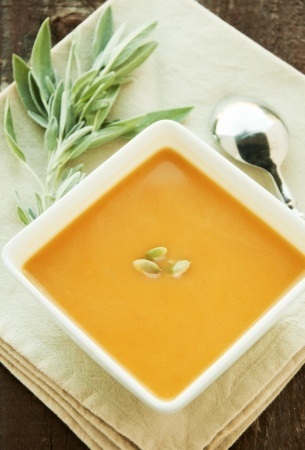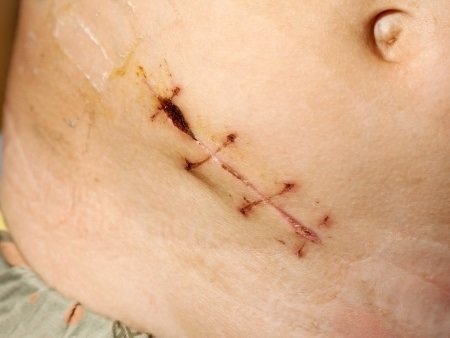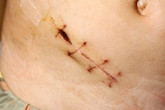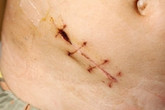What are the recommended appendix surgery recovery foods?
An appendix surgery is generally the result of appendicitis. When it occurs the appendix will get filled with pus and become very swollen, case in which the most common option you have is surgery. However, if you’ve recently had an appendix surgery, you may be a bit puzzled about the types of appendix surgery recovery foods you are allowed to eat. While following the advice of your surgeon is very important, you should know that you can also add certain foods to your diet that may help you with your recovery.
Clear Broth
In the first few hours after you've had the surgery, you may not really feel like eating anything, but the sooner you start consuming foods, the sooner your recovery will start. In this case, clear broth is a safe and bland type of food that you can sip slowly, helping you regain your strength without causing vomiting and nausea. When having broth, it's recommended that you take a few sips at a time and as your appetite increases and you'll gradually feel stronger, you can have more.
Squash
Orange or dark yellow squash is yet another easy to digest and soft food that can help the surgery wound heal faster. Squash is an excellent source of LaValle note, Spreen, Zand and beta carotene, which your system needs for making Vitamin A; this nutrient is extremely helpful because it encourages proper healing. You can consider adding pureed and cooked squash shortly after having the appendix surgery, but if you want to eat other foods that contain beta carotene, then you may want to include leafy greens in your diet. One thing to keep in mind is that the greens and carrots need to be well cooked so they're softer and thus easier to digest.

Yogurt
The foods you need to eat after having appendix surgery need to be easy to digest and soft so that they don't cause vomiting or nausea. Not only does yogurt fit these requirements, but at the same time it will also help with healing process. As your appetite returns you should continue to consume yogurt and make it a vital part of your diet until your stomach will regain its strength to accept regular food. To ensure your body can digest it, it's best to start with just a few spoons of yogurt. If your stomach doesn't reject it, then you should consider having more. If you're not sure about the type of yogurt you should have, many people actually have low-sugar yogurt since it's much easier to digest.
What Not to Eat After Having Appendix Surgery
First of all, you'll only be able to eat once your doctor can hear bowel sounds through a stethoscope. In the beginning the foods you'll get are probably going to be ice chips and then liquids (such as soda, apple juice, broth and water). If your stomach accepts liquids, then you may be allowed to diversify your food intake and eat custard, applesauce and ice cream. If your stomach doesn't have any problems digesting them, you can return to a regular diet within 24 to 36 hours.
Bloating and Gas
Now, there are certain foods you should not eat and if you had appendix surgery it's very much recommended that you stay away from fatty foods for about 7 to 10 days. Post surgery you may have water or loose stools, yet considering a bland-food diet is less likely to produce diarrhea, discomfort and abdominal bloating. Based on information from the NDDIC, the majority of foods that contain carbohydrates may cause gas; so that is why it's best if you can avoid eating lettuce, broccoli and baked beans.
On the other hand, there are also various types of sugars that you should not eat because they may cause abdominal discomfort. To offer you some examples, they include fructose, sucrose and lactose (a natural sugar that’s found in dairy products). You should also avoid starches like wheat, pasta, corn and potatoes, because they produce gas when breaking down in the large intestine.
Alcohol
Beverages and food that contain alcohol should be avoided until you're fully recovered. Because alcohol is a drug, it may react in a negative way with the anesthesia that’s still in your system and that is why you should thoroughly avoid it. For example, baked foods containing alcohol will retain 45% of it after twenty five minutes of baking. According to the United States Department of Agriculture, if you want to reduce the alcohol content to 5%, you need to simmer a casserole, stew or a soup for up to 2:30 hours.
It's important that you're really careful about the appendix surgery recovery foods you consider, since they can help you a lot with speeding your recovery. The better and healthier your choices, the faster you'll regain your strength and feel much better.
| Written by: | Michal Vilímovský (EN) |
|---|---|
| Education: | Physician |
| Published: | November 21, 2013 at 12:40 PM |
| Next scheduled update: | November 21, 2015 at 12:40 PM |
Related articles
What can you do to speed up recovery after undergoing abdominal surgery?
Get more articles like this in your inbox
Sign up for our daily mail and get the best evidence based health, nutrition and beauty articles on the web.




Ache in left arm that you should not ignore
Alkaline water dangers: why you should not drink it
How to Avoid Sleepiness While Studying?
23 Foods That Increase Leptin Sensitivity
Low dopamine (e.g. dopamine deficiency): causes, symptoms, diagnosis and treatment options
Swollen taste buds: the ultimate guide to causes, symptoms and treatment
Thin endometrial lining: causes, symptoms, diagnosis and treatment
Pimples inside nose: the complete guide
Holes in tonsils: definition, symptoms, treatment and prevention
How to deal with an ingrown hair cyst
Allegra vs. Zyrtec vs. Claritin
Allergy to penicillin and alternative antibiotics
How to get rid of phlegm (excessive mucus) in throat? Detailed guide to medical and home remedies, symptoms and causes
What causes stomach ache after meals?
Liver blood test results explained